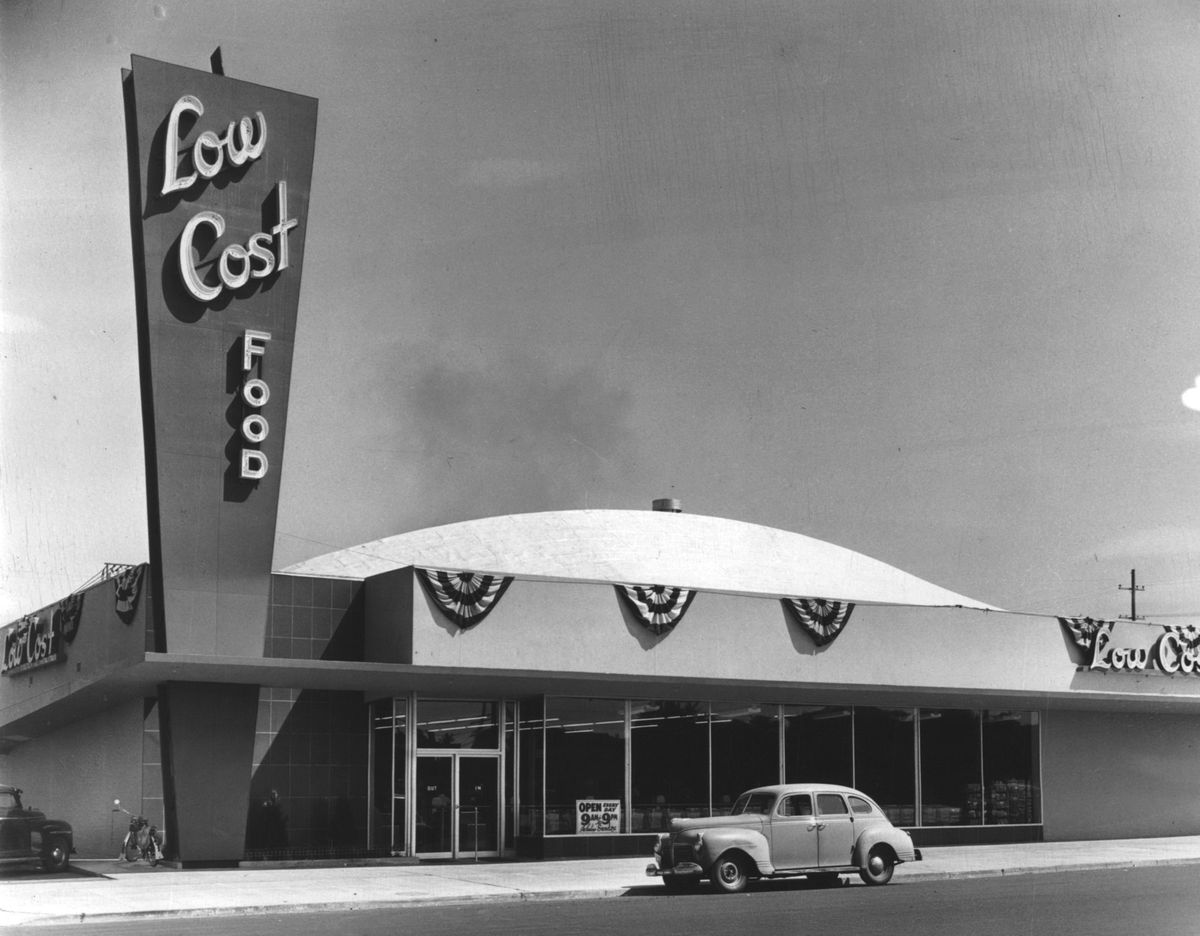Then and Now: Low Cost Food Market

During the 20th century, Spokane and the rest of America went through a revolution in retail marketing. Skaggs drugstores, Safeway and The Bon Marché were part of the expansion in chains of grocery, drug and department stores.
One of the innovators in retail was Roy L. Stone, born in Driggs, Idaho, in 1899. By 21, he was an assistant manager of a Skaggs drugstore in Oakland, California. From there, he created a 32-store chain of his own and sold that in 1928 to MacMarr stores, which made him a vice president over their 160 stores.
When MacMarr merged with Safeway stores in 1931, Stone left, moved to Spokane and started another chain of grocery stores called Stone’s Foods. He built seven stores in Spokane, with others in Lewiston, Wallace, Sandpoint, Kellogg and Bonners Ferry, Idaho; Pendleton and Hermiston, Oregon; and Walla Walla. He sold that chain to Sigman’s Food Stores of Yakima in 1946 for a half-million dollars. Sigman’s kept the Stone name on the stores and took over Stone’s office and warehouse at 114 W. Pacific Ave. in Spokane.
And Stone wasn’t done. After watching the Spokane market for a few years, he announced a new venture, Low Cost Food Market, starting in 1951 with a large store at Division and Baldwin, which recently housed Mountain Gear sporting goods. Stone added stores at Crestline and Wellesley, Garland and Oak, and two more in Spokane Valley.
Stone’s poor health forced him to step back from the business in 1961. In 1959, he had joined a partnership, Big C Stores Inc., which continued operating Low Cost Food Market stores and added more stores in Oregon and Idaho.
Stone died in 1973 at his winter home in Palm Desert, California.
Big C Stores became part of the Gov-Mart Baza’r chain in 1968, and some stores across the region took the Baza’r name, including the Low Cost store at 6510 E. Sprague Ave. The chain now included grocery, department and discount stores.
The Low Cost Food Markets in Spokane were sold off to independent owners around 1976, as the company was positioning itself to compete with larger chains like Fred Meyer and Kmart.